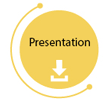-
Wendy Jane Collinson
Bio statement : Project Executant
Wildlife and Roads Project
Country : ZA
Contact : wendyc@ewt.org.za
Website : https://www.ewt.org.za/ -
Claire Patterson-Abrolat
Bio statement : Special Projects Manager
Country : ZA
Contact : clairep@ewt.org.za
Website : -
Laura Goodman
Bio statement :
Country : ZA
Contact : bugginglau@hotmail.com
Website : -
Thandiwe Rakale
Bio statement :
Country : ZA
Contact : thandiwer@n3tc.co.za
Website : -
Miles le Roux
Bio statement :
Country : ZA
Contact : milesl@n3tc.co.za
Website : -
Charmaine van Wyk
Bio statement :
Country : ZA
Contact : charmainevw@bakwena.co.za
Website : -
Lizanne Roxburgh
Bio statement : Senior Scientist
Country : ZA
Contact : lizanner@ewt.org.za
Website :
Roads are integral to the continued development and prosperity of South Africa’s economy. However, roads also have the potential to destroy and degrade habitat, as well as fragment wildlife populations. Traffic, particularly when reckless driving is involved, can have a direct negative impact on wildlife, with many species at risk from wildlife-vehicle-collisions (WVCs), often resulting in an animal’s death, or ‘roadkill’.
A relatively large body of international literature is available on mitigation measures to reduce conflict between road infrastructure and wildlife. However, few of these techniques have been tested for applicability to the species and situations found in South Africa, despite the country’s legislative framework that necessitates environmental impact assessments for development. This is in part due to a lack of understanding of the impacts of road development on wildlife.
The Endangered Wildlife Trust (EWT) has improved our understanding of the impacts of road infrastructure on wildlife in South Africa over the last six years. Through our work, we have been gathering WVC data from across the country by driving set routes and encouraging members of the public to submit data. In January 2014 we launched a national public awareness campaign to report WVC sightings. The campaign reached over 1,100 members (nationally and internationally) on the Road Ecology LinkedIn group, almost 800 members on the Road Ecology Facebook page and almost 250 followers on the EWTRoads Twitter account. In addition to this, a cellphone app called ‘Road Watch’ was launched to enable members of the public to assist with data collection. As a result of these WVC reporting platforms, almost 10,000 roadkill data points have been collected with the assistance of over 150 volunteers from across the country. From these data, we can identify problem species and sites, and develop and implement targeted measures to reduce wildlife-road-mortality.
Apart from public engagement, we are also establishing partnerships with relevant stakeholders, such as the N3 Toll Concession and Bakwena N1/N4 Toll road agencies, to provide measures to reduce the impacts of roads on wildlife as well as expand on current public awareness roadkill campaigns. Through these partnerships, we provide training workshops for data collection and species identification, and capacitate road patrol teams, as well as members of the public, to record and submit roadkill sightings from across the country.
Data, social media, public awareness campaign, road agencies, citizen science
